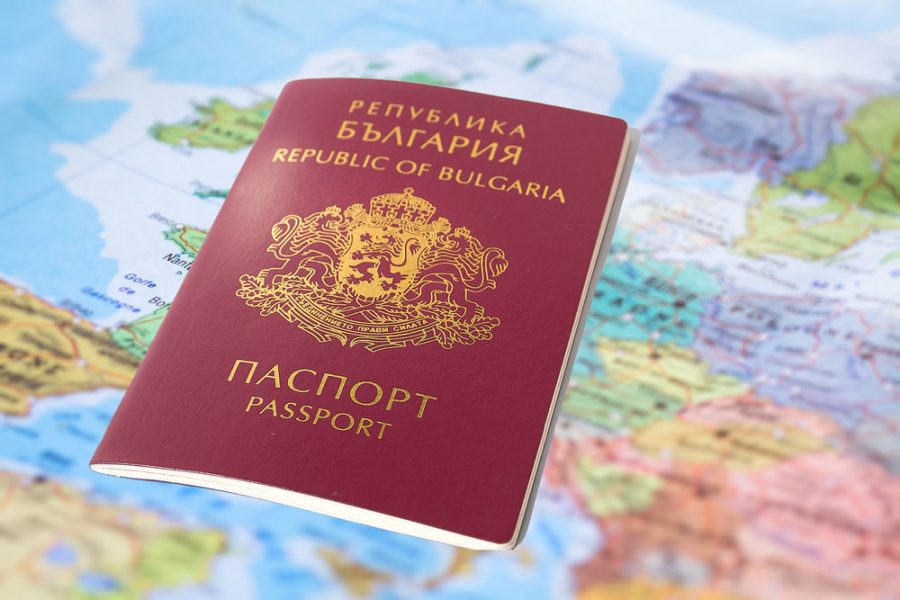by New Balkans Law Office
On 22.01.2019 and 23.01.2019, the Government of Bulgaria (GoB) announced intended amendments to Bulgaria’s citizenship law. These will, if passed in Parliament, abolish investment citizenship and align Bulgaria with the 17 EU member-states which the European Commission in its simultaneous report (Report) classifies as offering solely investment residence1. GoB intends to introduce a draft Bill to Parliament as soon as the end of this month. It is as yet unclear when it is intended for the change to take effect.
Commissioner Jourová, sponsor of the Report, has welcome the policy turnaround.
GoB has expressly stated that this policy change is the result of an internal review carried out over 11 months by a working group convened for this reason (Working Group) and denied that it was forced by the Report. The policy change is explained as part of a drive for administrative simplification in home affairs and it is said that investment has been more anaemic than expected.
There has unfortunately been no transparency on the activities of the Working Group, its composition; evidence it has heard or used; and whether it has conducted any form of external consultation.
Bulgaria has to date allowed investment citizenship through investments in government bonds, listed shares, private companies and intellectual property since 2013.
More generally, reported problems in the area of grant of citizenship in Bulgaria have exclusively concerned completely different processes: mainly citizenship on the basis of origin through which more than 100,000 have become Bulgarian citizens.
Bulgaria’s current process
As Bulgarian legal service providers specialising in private client matters, New Balkans Law Office wish to clarify the following. In fact these can and do upon meeting an additional connection test lead to citizenship
- In Bulgaria, citizenship-by-investment applicants are subjected to much more rigorous checks than other applicants for naturalisation. Applicants are thoroughly vetted by over 15 state bodies and agencies, including the Ministry of Interior’s State Agency for National Security and the General Directorate for Combating Organised Crime – which are specialised in financial crime including money laundering, and organised crime. Applicants pass through at least 4 stages of vetting and are interviewed by officials at least twice. The process typically takes just over 2 years giving the authorities sufficient time to perform security checks and for information on their backgrounds to be sourced.
- According to statistical data released previously by the Ministry of Justice there are around 40 new Bulgarian citizen-investors as of mid 2018.
- There are about 300 investors granted permanent residence.
- To date, GoB has not invested in promoting or popularising these routes to citizenship.
- Applicants make investments of at least EUR 512,000 each, and some double their investment to fast-track their citizenship process to 2 years.
- Bulgaria has received investments of between EUR 150,000,000 and EUR 200,000,000 since 2014, against the background of minimal GoB effort.
- Residence and/or citizenship by investment is offered by 20 out of the 28 Member States of the European Union and worldwide by developed economies such as the USA, Canada, Australia and Singapore.
- It is clear that applicant due diligence functions well. If there have been only 40 approvals, this is partly due to cautious processing and to refusals for some of the candidates. There have been reported cases of individuals identified as a threat to the national security, who have been denied citizenship despite making the requisite investment.
The Report’s findings and Bulgaria
While covering both CBI and RBI schemes, the Report focuses on CBI in Malta, Cyprus and Bulgaria.
- It does not call for the termination of citizenship-by-investment schemes but recommends generally robuster controls during the application process.
- The Report correctly accepts that granting citizenship is a matter of sovereign national competence – citizenship is outside the remit of EU law.
- Perhaps the main significant to Bulgaria finding in the Report is that the process of citizenship is insufficiently transparent – it is unclear what weight is placed on various factors in deciding to grant or deny citizenship or why certain applications take more time to process. However, this is a complaint that may be levied against all work in administering nationality and immigration matters and is not specific to CBI/RBI
- The complaints on the basis of particular or special risks of money laundering or organised crime appear to us unfounded and counterintuitive: investor-applicants are exposed to much more and longer scrutiny than others (see above). E.g. those forced to flee armed conflict and admitted in a humanitarian hurry or non-EU citizens joining a recently married spouse cannot be subjected to as much scrutiny as they cannot be delayed.
- It is unclear that affluent applicants are more likely to participate in economic crime or organised crime than those who are economically disadvantaged
- Given the above and given that the route to citizenship has been of significant net benefit to Bulgaria, it is unclear what if anything the country has to gain from offering a concession that it has not been and cannot be requested to make.
Benefits to Bulgaria from the investment citizenship route
- Bulgaria has received investments of between EUR 150,000,000 and EUR 200,000,000 since 2014 against the background of minimal GoB effort.
- Some of the investors (in our experience as much as 25%) have actively explored or started new business ventures in Bulgaria alongside their investment in Government bonds. The bonds serve as a low risk, taster investment as all investors visit Bulgaria and are able to explore its business opportunities
- An important intangible benefit is that the programme advertises Bulgaria to investors and entrepreneurs who would not otherwise associate with the country and diversifies Bulgaria’s investment base.
- All investors and their family members pay state fees. The 400 investors to date have contributed around BGN 2,000,000 in fees to the GoB budget
- Investors are also required to make health insurance contributions, although they rarely draw down on the national health insurance fund. This is a direct surplus to the national health care system that helps other Bulgarians
- The government bonds which are currently the favoured investment instrument choice allow Bulgaria to raise funds more advantageously in the international markets. The funds thus raised can feed projects designed to bolster the economy including (if so desired) manufacturing (e.g., through training schemes, infrastructure funding (within the limits of state aid rules)).
Who are the typical investor-citizens?
According to GoB data, about 45% of investors are Russian or Russian-speaking citizens of the former USSR.
In our experience and understanding, these people are not wealthy oligarchs, most are entrepreneurs. Investing in government bonds is a way to save money while planning for the future and for their children and avoiding the difficulties of travel on a low-prestige passport.
Passport desirability as a resource?
The Bulgarian passport has only recently become desirable and given that Bulgaria boasts relatively fewer natural resources, it seems to us that given that security requirements are maintained, a viable CBI scheme can only help increase Bulgaria’s attractiveness.
Equally, if Bulgaria is perceived to respond to general Report recommendations by urgently renouncing its national policy, there is a risk of loss of prestige including among its European partners.
At the same time, it seems to us right for Bulgaria to optimise and adjust its CBI law as its economic circumstances change. If the move by the GoB helps open an informed discussion of what form of investments are best and how they are best utilised, this would be welcome.
About New Balkans Law Office

New Balkans Law Office is a boutique consultancy firm with offices in Sofia and London. The immigration team of the firm consists of young professionals with extensive experience in the field and excellent communication skills. NBLO has already assisted successfully a number of HNWIs during their application process and are well positioned to help out any applicant.
Please visit the website: http://www.newbalkanslawoffice.com/





